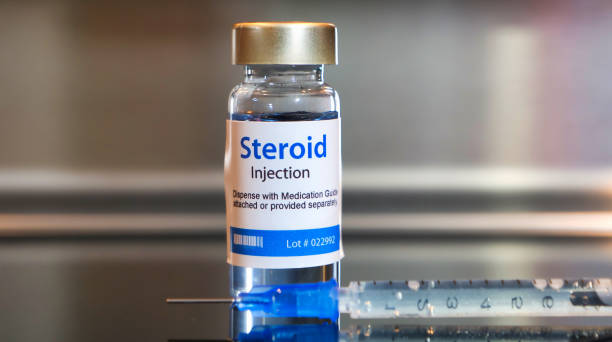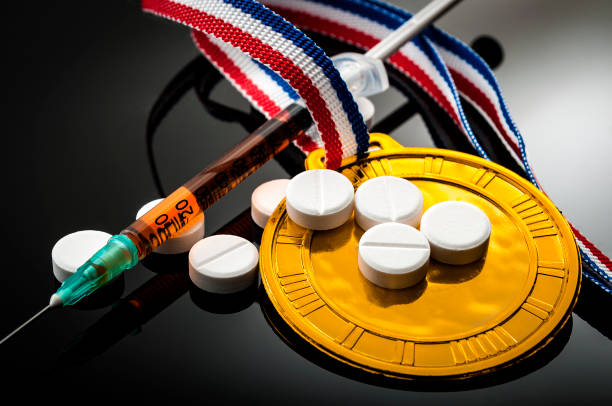Is Creatine Considered Natty? Unpacking the Creatine Natty Debate
Is Taking Creatine Still Considered Natty?
Creatine is one of the most popular supplements in fitness circles, but it often raises questions about its status among "natty" athletes.
This article breaks down what it means to be natty, how creatine works, and whether taking creatine aligns with staying natural.
Read on to find clear answers and useful insights.
Article Outline
- What Does "Natty" Mean?
- What Is Creatine?
- How Does Creatine Work?
- Is Creatine Considered Natty?
- Creatine vs. Steroids: What's the Difference?
- Benefits of Creatine Supplementation
- Ethical Considerations in Sports
- Potential Side Effects of Creatine
- Creatine Supplementation and Whey Protein
- How to Take Creatine Safely

1. What Does "Natty" Mean?
The term "natty" is short for "natural" and describes athletes and bodybuilders who avoid anabolic steroids or performance-enhancing drugs.
Within the fitness community, staying natty is seen as maintaining an honest and healthy approach to fitness.
If you're interested in learning more about natural supplement options, check out A Guide to Supplement Forms.
2. What Is Creatine?
Creatine is a naturally occurring compound found in small amounts in foods like meat and fish.
The body synthesizes creatine using amino acids, primarily in the liver, kidneys, and pancreas.
Its natural occurrence makes it an appealing supplement for many athletes.
For a deep dive into the science behind creatine, read Creatine Monohydrate Powder.
3. How Does Creatine Work?
Creatine supports energy production by replenishing ATP, the body’s primary energy source for short-duration, high-intensity activities like sprinting and weightlifting.
This role in energy production makes creatine supplementation valuable for improving physical performance and muscle strength.
Learn more in How Does Creatine Work.

4. Is Creatine Considered Natty?
Creatine is considered natty by most standards. Its natural occurrence in the body and dietary sources, such as meat and fish, underscores its alignment with natural fitness practices.
Organizations like the World Anti-Doping Agency do not classify creatine as a banned substance.
For additional clarity, explore Creatine Myths.
5. Creatine vs. Steroids: What's the Difference?
Creatine and steroids serve different purposes. While steroids are anabolic drugs that alter hormone levels to boost muscle growth and performance, creatine is a dietary supplement that supports the body’s natural processes.
Creatine does not have the same risks or ethical implications as anabolic steroids.
To compare creatine with other supplements, check out Creatine vs. L-Carnitine.

6. Benefits of Creatine Supplementation
The benefits of creatine supplementation include:
- Enhanced muscle strength and power.
- Improved performance during high-intensity, short-duration activities.
- Support for muscle recovery and growth.
Creatine’s natural occurrence and proven benefits make it a widely trusted supplement.
Discover more benefits in Creatine Recovery.
7. Ethical Considerations in Sports
Ethical considerations in sports focus on maintaining fairness and integrity.
Since creatine is a naturally occurring compound and widely available, its use is generally viewed as ethical and within the bounds of fair competition.

8. Potential Side Effects of Creatine
Though creatine is safe for most people, potential side effects include:
- Temporary bloating.
- Mild digestive discomfort.
These side effects are rare and can often be mitigated by following recommended dosages.
Learn more in Creatine Supplementation Side Effects.
9. Creatine Supplementation and Whey Protein
Creatine supplementation and whey protein are popular choices among athletes and fitness enthusiasts.
Both are natural dietary supplements that support muscle recovery, growth, and overall performance.
For a full comparison of creatine forms, visit Creatine Powder vs. Pills.

10. How to Take Creatine Safely
To take creatine safely:
- Start with a loading phase (20 grams per day for 5-7 days).
- Transition to a maintenance phase (3-5 grams per day).
- Use creatine powder or pre-workout supplements containing creatine for convenience.
For a detailed explanation, read Creatine Loading Phase Explained.
Key Points to Remember
- Creatine is a naturally occurring compound found in small amounts in meat and fish.
- The body produces creatine naturally from amino acids.
- Creatine supports ATP production, enhancing performance in high-intensity activities.
- Creatine is generally considered natty and aligns with natural dietary practices.
- Unlike steroids, creatine is a safe and ethical supplement.
- Benefits of creatine supplementation include improved muscle strength, power, and recovery.
- Always follow recommended dosages to avoid potential side effects.
- Creatine supplementation pairs well with whey protein for optimal performance and recovery.
By understanding the facts about creatine and its benefits, you can make informed decisions about using it to support your fitness goals.
For further reading, explore The Creatine Supplements Ultimate Guide.
For More Training Advice + Diet and Lifestyle visit us Combat Creatine
PS: Make sure you check out the rest of our Creatine Guides:
Creatine
Creatine Supplements Ultimate Guide
Creatine Supplementation Side Effects
Best Creatine Monohydrate Gummies Review: Top 10 Best Creatine Gummies












